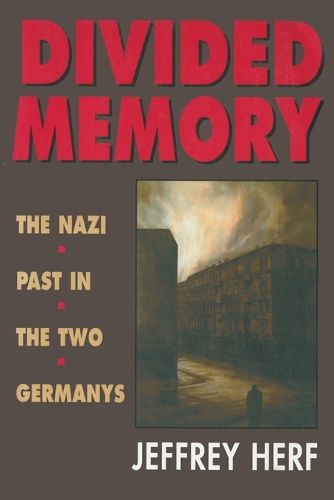Readings Newsletter
Become a Readings Member to make your shopping experience even easier.
Sign in or sign up for free!
You’re not far away from qualifying for FREE standard shipping within Australia
You’ve qualified for FREE standard shipping within Australia
The cart is loading…






What has Germany made of its Nazi past? This book explores the legacy of the Nazi regime, exposing the workings of past beliefs and political interests and how differently the two Germanys have recalled the crimes of Nazism, from the anti-Nazi emigration of the 1930s through the establishment of a day of remembrance for the victims of National Socialism in 1996. The author asks why would German politicians raise the spectre of the Holocaust at all, in view of the considerable depth of support its instigators and their agenda had found in Nazi Germany. Why did the public memory of Nazi anti-Jewish persecution and the Holocaust emerge, if selectively, in West Germany, yet was repressed and marginalized in anti-fascist East Germany? The book aims to answer this question and more, revealing the relationship between how the crimes of Nazism were publicly recalled and how East and West Germany separately evolved a Communist dictatorship and a liberal democracy. The author uses private and public papers and statements of key German figures to explore the subject and to place it within its historical context and the ideologies and experiences of pre-1945 German and European history to the Cold War.
$9.00 standard shipping within Australia
FREE standard shipping within Australia for orders over $100.00
Express & International shipping calculated at checkout
Stock availability can be subject to change without notice. We recommend calling the shop or contacting our online team to check availability of low stock items. Please see our Shopping Online page for more details.
What has Germany made of its Nazi past? This book explores the legacy of the Nazi regime, exposing the workings of past beliefs and political interests and how differently the two Germanys have recalled the crimes of Nazism, from the anti-Nazi emigration of the 1930s through the establishment of a day of remembrance for the victims of National Socialism in 1996. The author asks why would German politicians raise the spectre of the Holocaust at all, in view of the considerable depth of support its instigators and their agenda had found in Nazi Germany. Why did the public memory of Nazi anti-Jewish persecution and the Holocaust emerge, if selectively, in West Germany, yet was repressed and marginalized in anti-fascist East Germany? The book aims to answer this question and more, revealing the relationship between how the crimes of Nazism were publicly recalled and how East and West Germany separately evolved a Communist dictatorship and a liberal democracy. The author uses private and public papers and statements of key German figures to explore the subject and to place it within its historical context and the ideologies and experiences of pre-1945 German and European history to the Cold War.